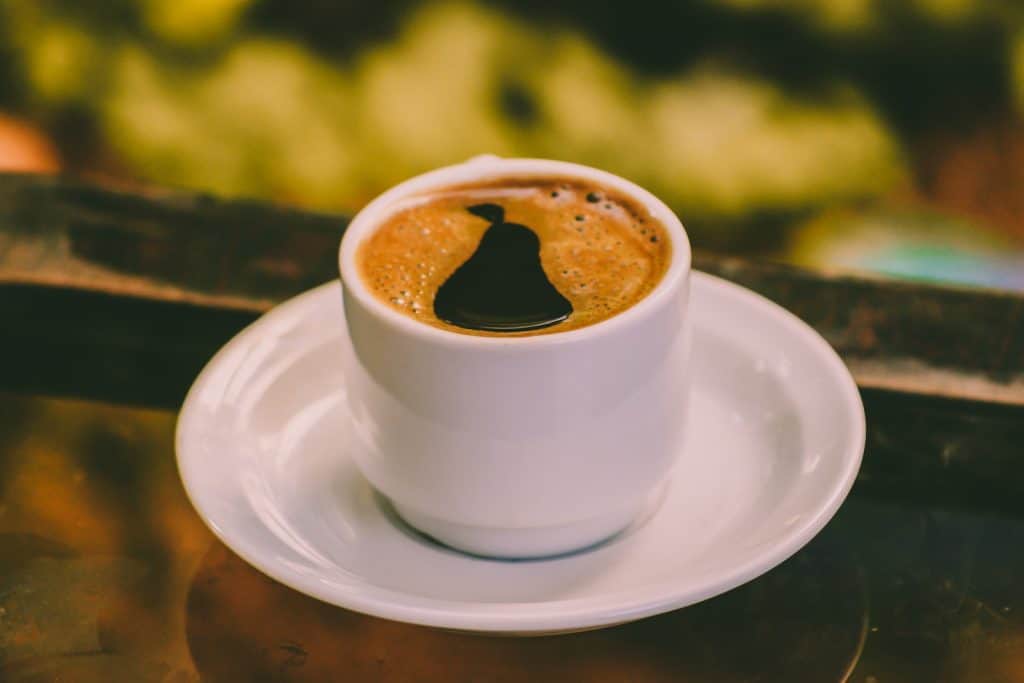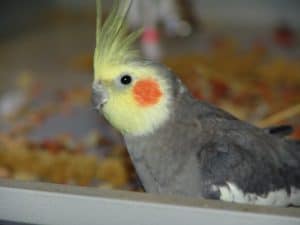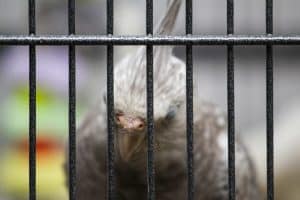Cockatiels are charming and popular pet birds, known for their playful personalities and beautiful plumage. As a responsible bird owner, it’s crucial to be aware of what your feathered friend can and cannot consume. One question that often arises is, “Can cockatiels drink coffee?”
In this comprehensive blog post, we will delve into the world of caffeine and its effects on these beloved avian companions. We’ll also touch on the broader topic of caffeine consumption in various pet bird species, exploring the potential risks and alternatives.
Understanding Cockatiels
Before we address the coffee and caffeine issue, let’s start by understanding the basics of cockatiels. These small parrots have specific dietary needs and are sensitive to a range of substances. They are an affectionate, intelligent, and social bird species, which makes them popular pets in many households.
The Dangers of Caffeine
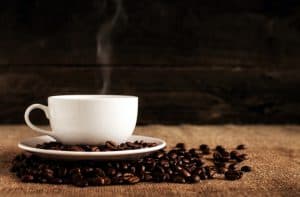
What Is Caffeine?
Caffeine is a natural stimulant commonly found in coffee, tea, and other beverages. It’s known to affect the central nervous system, leading to increased alertness and energy in humans. However, caffeine can have quite the opposite effect on birds, including cockatiels.
Caffeine Toxicity in Birds
Caffeine toxicity is a serious concern for pet birds. Even a small amount of caffeine can potentially lead to life-threatening consequences. When ingested, caffeine can induce vomiting, tremors, and, in severe cases, heart problems, including cardiac arrest. In some instances, it can even be fatal.
Coffee and Cockatiels
Does Coffee Contain Caffeine?
Yes, coffee is well-known for its caffeine content. A standard cup of coffee can contain anywhere from 95 to 165 milligrams of caffeine. But what happens if your inquisitive cockatiel gets too close to that morning cup?
Potential Dangers of Coffee Consumption
Cockatiels and other pet birds should never be allowed to consume coffee or coffee-related products. Coffee is not only high in caffeine but also contains compounds like chlorogenic acid, which are harmful to birds. In the bird’s body, caffeine can lead to increased heart rate, induce seizures, and potentially kill the bird.
Parrots and Caffeine
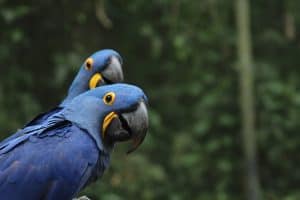
Other Parrots and Caffeine
Now, let’s broaden our perspective beyond cockatiels and explore how various parrot species, including cockatoos, macaws, and African greys, are affected by caffeine. It’s important to grasp that the risks associated with caffeine consumption are not limited to one specific parrot species.
Parrots Drink Decaffeinated Coffee
While it’s always best to avoid caffeine entirely, some parrot owners may wonder if offering decaffeinated coffee is a safer alternative. However, even decaffeinated coffee can pose risks to your feathered companions due to the presence of other compounds that could be harmful to them. It’s crucial to remember that caffeine is just one part of the puzzle, and the overall composition of coffee can still be detrimental to parrots.
Parrots Drink Coffee
The reality is that coffee, in any form, should not be a part of a parrot’s diet. Parrots, with their unique digestive systems, do not process caffeine like humans do. It’s essential to prioritize the well-being of your feathered friends by steering clear of caffeinated beverages, including coffee.
How Much Coffee Is Too Much?
The quantity of coffee or caffeine that can harm your pet parrot varies from bird to bird. It depends on the bird’s size, age, and overall health. However, it’s always better to err on the side of caution and avoid exposing your feathered friend to caffeine entirely.
Safe Alternatives
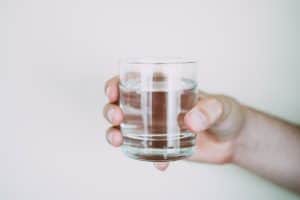
What Can Birds Safely Consume?
It’s natural for bird owners to want to treat their pets, so here are some safe alternatives to coffee:
- Fresh Water: Provide your bird with clean, fresh water to keep them well-hydrated.
- Herbal Tea: Some bird owners offer caffeine-free herbal teas in moderation. Chamomile tea, for example, can be soothing for birds.
- Certain Fruits: Birds can enjoy certain fruits like apples and citrus in small quantities.
- Seeds and Nuts: Many birds relish seeds and nuts, which can be given as occasional treats.
- Diet Foods: Specialized diet foods formulated for birds can be a healthier option than caffeine-laden human snacks.
Signs of Caffeine Poisoning
As a responsible bird owner, it’s vital to be vigilant and aware of the signs of caffeine poisoning in your pet parrot. Some common symptoms include excessive thirst, trembling, and increased heart rate. If you notice any of these signs, seek veterinary care immediately.
[lasso ref=”amzn-h-farms-worlds-freshest-gmo-free-no-pesticide-sun-dried-spray-millet-no-stems-only-edible-tops-original-bird-treat-and-supplement-for-pet-birds-parakeets-cockatiels-lovebirds-and-finches-5lbs” id=”1945″]
The Risks of Drinking Coffee
The Sensitivity of Birds’ Systems
Birds, including cockatiels, have highly sensitive systems. Even small amounts of caffeine, like that found in coffee beans and caffeinated coffee, can have a significant impact on their health. Unlike humans, birds metabolize caffeine very slowly, which means it lingers in their system for an extended period.
Caffeine Fix: A Deadly Temptation
Caffeine acts as a stimulant, and birds are particularly vulnerable to its effects. In the wild, birds wouldn’t naturally encounter caffeine, so their bodies lack the mechanisms to break it down efficiently. A seemingly harmless sip of caffeinated coffee can quickly turn into a life-threatening situation. It’s essential to be vigilant to prevent your feathered companion from developing a taste for this potentially harmful brew.
The Health Consequences
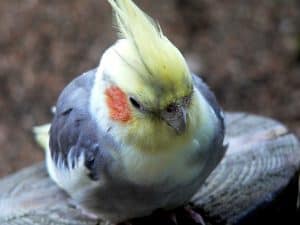
Overweight Birds and Diet Foods
As pet bird owners, it’s common to indulge our avian friends with treats and snacks. However, it’s crucial to avoid many diet foods meant for human consumption. These products often contain hidden caffeine, artificial sweeteners, or high levels of salt, which can lead to health problems and contribute to overweight birds.
Too Much Caffeine and Its Consequences
In the unfortunate event that your bird consumes coffee or other caffeinated beverages, you should contact a veterinarian immediately. Caffeine overdose can lead to a wide range of health issues, including heart palpitations, seizures, and even death. While it’s always best to prevent your bird from accessing such beverages, knowing when to seek professional help is vital in emergencies.
Not Just Coffee – Other Caffeinated Beverages
Caffeine Hides in Unexpected Places
It’s not just coffee that poses a threat to birds; caffeine can hide in other unsuspecting beverages and products. For instance, energy drinks, certain sodas, and even some teas contain caffeine. These are all off-limits for your feathered friends. Always check labels and ingredients to ensure that your bird doesn’t accidentally consume something that could harm them.
Understanding the Risk for Most Birds
It’s important to stress that caffeine is not only harmful to cockatiels but also to most bird species. Whether you have a parakeet, conure, or lovebird, caffeine should be entirely avoided in their diet. Each bird’s size and sensitivity may vary, but the risk remains consistent across different avian companions.
Responsible Bird Ownership
In conclusion, when it comes to coffee and caffeine, the best approach is prevention. Be a responsible bird owner by keeping your bird’s environment caffeine-free. Ensure that your feathered friends have access to fresh water and a well-balanced, bird-friendly diet. While the temptation of sharing your morning cup of coffee might be strong, the potential harm it can cause is not worth the risk.
Remember, in cases of accidental consumption of coffee, caffeinated drinks, or other potentially harmful substances, contact a veterinarian immediately. A prompt response can make all the difference in ensuring your bird’s well-being.
Final Thoughts: Can Cockatiels Drink Coffee?
In summary, the answer to the question, “Can cockatiels drink coffee?” is a resounding no. Coffee, with its caffeine content, is toxic to birds, including cockatiels. It’s essential for bird owners to be aware of the potential dangers associated with caffeine and to provide a safe and suitable diet for their feathered friends.
Remember that responsible pet ownership includes keeping harmful substances like caffeine away from your beloved birds. They depend on us to provide a safe and loving environment, and this means being cautious about what they consume. By avoiding caffeine and offering them bird-friendly treats and alternatives, you can ensure a long and healthy life for your feathered companions.
So, the next time you savor your morning cup of coffee, enjoy it with the knowledge that your cockatiel is much happier with a safe and caffeine-free environment. In doing so, you’re not only safeguarding their health but also enhancing the bond you share with your feathered friend.
Be a responsible bird owner, and let’s keep our birds chirping happily for years to come! If you ever suspect your bird has consumed coffee or any potentially toxic substance, don’t hesitate to seek immediate veterinary care to ensure their well-being. Your feathered friend deserves nothing less.
